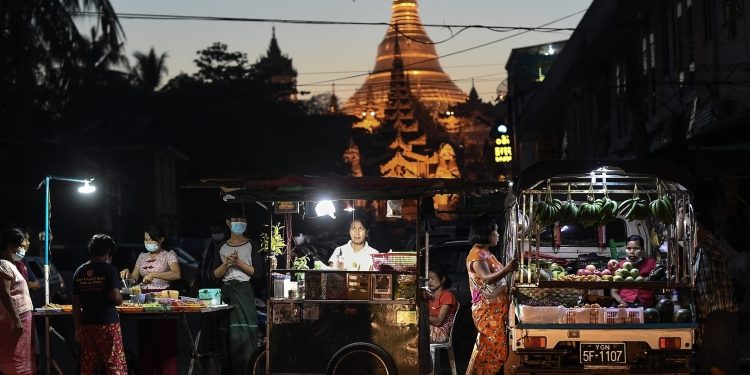Foreign investment in Myanmar fell 60 percent in the first quarter of this year compared to the same quarter in 2022, according to figures from the Directorate of Investment and Company Administration (DICA) under the junta’s Ministry for Investment and Foreign Economic Relations.
In the first quarter, the regime approved US$178 million of foreign investment, down from $402 million in the same period last year, which was itself down 50 percent on-year from $908 million in Q1 2021.
“It’s not strange that this would happen under such a regime and under such a chaotic system. It’s not strange that investors are afraid to come and invest in such a conflict-torn and deteriorating system,” said a businessman in Yangon.
Total foreign investment for fiscal year 2020-21 was $3.7 billion, down 20 percent from $4.9 billion in FY2019-20.
At the end of September 2021, the junta’s State Administration Council (SAC) issued the 2021-2022 Fiscal Year, (6) months National Project Law specifying the six-month period from October 2021 to March 2022 as an interim budget period.
The junta approved $647 million of foreign investment in that interim period. It also announced a new fiscal year of April 1 to March 31, effective in FY2022-23, to replace the fiscal year of Oct. 1-Sept. 30 established by the National League for Democracy government, which was ousted by the military’s 2021 coup.
In FY2022-23, the first full fiscal year during which the junta had control of the economy, Myanmar received only $1.6 billion of foreign investment, with Singapore, the biggest investor, accounting for $1.1 billion. China and Thailand were the second- and third-largest investors.
The total amount of foreign investment for the whole of FY2022-23 under the junta was just $100 million more than Myanmar received in the first quarter alone in 2020 under the civilian NLD government, of $1.5 billion.
This April, the first month of the junta’s 2023-24 fiscal year, Myanmar received only one foreign direct investment project, worth $3.7 million, in the manufacturing sector.
Economic experts remarked that foreign investors are shunning the country not only due to the political instability but also for the junta’s mismanagement of the financial sector as well as infrastructure needs such as the electricity supply.
“Foreign investment will only come into a country when it has a stable administrative system. As long as we have no such stability in governance, and until a legitimate government can rule the country, we will just be stuck with such low FDI potential,” said U Moe, an economic expert.
The World Bank said in its Myanmar Economic Monitor for this year that though Myanmar showed signs of a pick-up in domestic investment in the second half of 2022, foreign investment remains weak and GDP for this year, while expanding a modest 3 percent on-year, would be 13 percent smaller than it was in 2019.

















